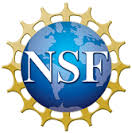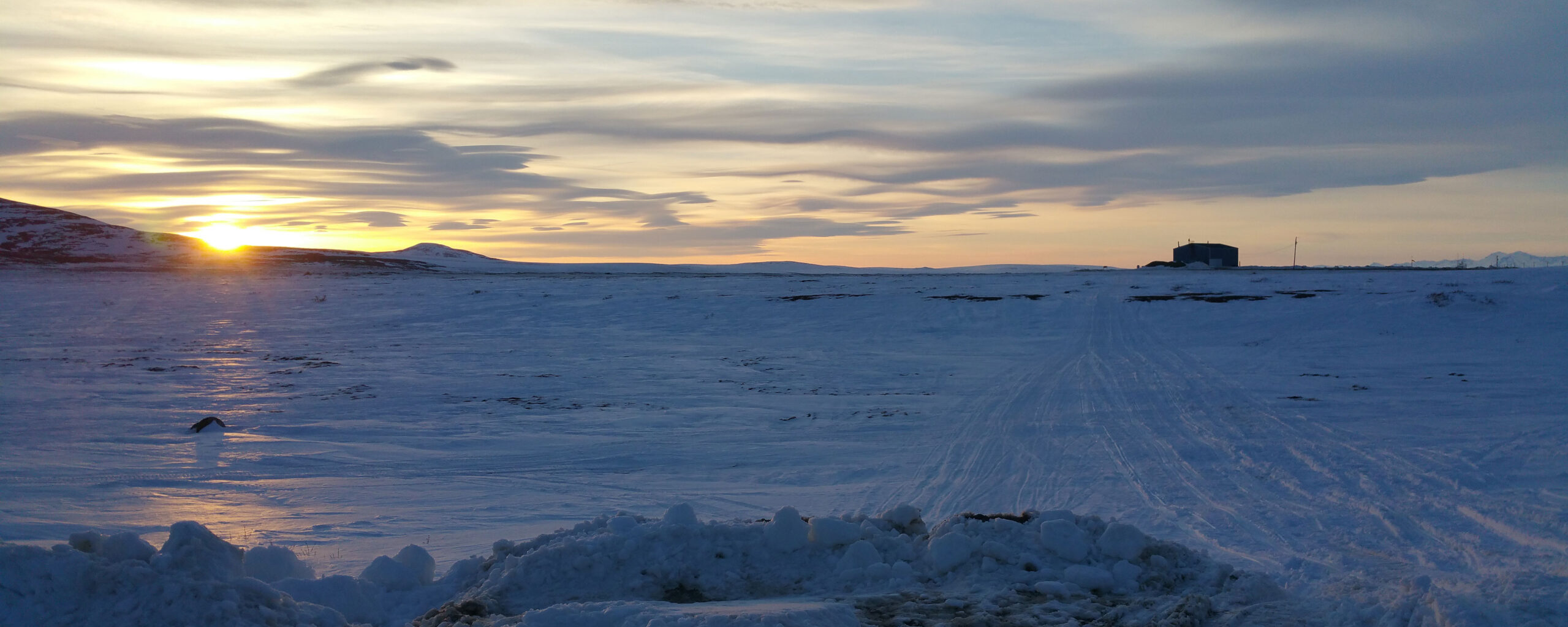Funding: National Science Foundation

Collaborative Research: Complex Effects of Telecoupled Activities in the Changing Environment of the Arctic – To examine the interactive effects of multiple distant drivers on Arctic systems, the researchers will develop a dynamic systems model focusing on the Bering Strait region of Alaska. As the only marine access point to the Arctic from the Pacific Ocean, the Bering Strait represents a critical corridor for both migratory marine wildlife and marine vessel traffic, making it an ideal study region for this project. The model will be based on the framework of telecoupling, which examines socioeconomic and environmental interactions across long distances. The interdisciplinary team will apply this model to address three important and interrelated objectives: (1) understand how telecouplings influence the habitat of marine mammal species crucial to subsistence economies and cultures, (2) determine the effects of telecouplings on community economies and wellbeing, and (3) develop different telecoupling-induced change scenarios and assess their potential effects on human communities and marine mammal habitats. Researchers and community partners will collaborate to incorporate local knowledge into the model and improve its ability to reflect on-the-ground experiences, as well as document concerns and local knowledge. Furthermore, the team will train four junior interdisciplinary systems scientists and will disseminate research results widely to various stakeholders to help with the sustainability of Arctic human and natural systems.
Arctic communities and ecosystems are experiencing dramatic changes, not just from a changing climate, but also from economic globalization and increased development of Arctic natural resources. Although these economic and climate forces are often studied separately, they may interact, generating potentially complex effects on ecosystems and the well-being of Arctic human communities. As an essential step toward mitigating threats and promoting human well-being, this research project seeks to understand how forces from outside Alaska, such as marine traffic, tourism, and natural resource extraction, combine to affect marine ecosystems and coastal human communities.
Telecoupling

Telecoupling is a new avenue of research that enables natural and social scientists across various disciplines to understand and generate information for managing how humans and nature sustainably coexist. The telecoupling framework helps describe how distance is shrinking and connections are strengthening between nature and humans. It allows scientists from many sciences — biology, ecology, economics, sociology and more — join as never before to understand a problem as it exists in the real world – complex and dynamic.
Publications and Presentations
Bella Block, Managing Increased Rates of Vessel Traffic in the Bearing Straits. Arctic Congress, Bodø, Norway, 2024.
Bella Block, Jennifer Schmidt, Kelly Kapsar and Dillon J. Hotspot Analysis of Bering Strait and Sea, 2015-2022 [Conference Poster]. Alaska Marine Science Symposium. Anchorage, Ak. 2024
Michele Remer, Livingston A., Coalter, J., Sydney Waloven, Jianguo “Jack” Liu, A Review of Tourism
and Species Invasion in a Warming Arctic [Conference poster]. International Association of Landscape Ecology – North America Chapter, Oklahoma City, OK. 2024
Kelly Kapsar, Sullender, B., and Kuletz, K. Recent patterns of vessel risk to seabirds: A multi-scale seasonal analysis in the North Pacific and Arctic [Conference poster]. International Association of Landscape Ecology – North America Chapter. Oklahoma City, OK. 2024
Sydney Waloven, Cahill, C., Predicting bearded seal abundance in the Bering Strait
Region [Conference Presentation]. International Association of Landscape Ecology – North America Chapter, Oklahoma City, OK. 2024.
Sydney Waloven, Cahill, C., Predicting bearded seal abundance in the Bering Strait Region [Conference Presentation]. Michigan State University, Department of Fisheries and Wildlife Annual Graduate Student Organization Research Symposium, East Lansing, MI. 2024
Kelly Kapsar, Sullender, B., and Kuletz, K., Quantifying risk of vessel encounters with sea ducks in the North Pacific: A multi-scale seasonal analysis of Alaskan Oceans [Conference Presentation]. The International Sea Duck conference (virtual). 2024
Michele Remer, A Life Cycle Assessment of a Tourist Visit to Nome, Alaska. [Conference Presentation]. Michigan State University, Department of Fisheries and Wildlife Annual Graduate Student Organization Research Symposium, East Lansing, MI. 2024
Kelly Kapsar, Grant Gunn, Lawson Brigham and Jianguo “Jack” Liu. Mapping vessel traffic patterns in the ice-covered waters of the Pacific Arctic. Climatic Change, 2023. DOI: 10.1007/s10584-023-03568-3
Jianguo “Jack” Liu, Leveraging the metacoupling framework for sustainability science and global sustainable development. National Science Review, 2023 DOI: 10.1093/nsr/nwad090
Sydney Waloven, Kelly Kapsar, Tobias Schwoerer, Matthew Berman, Jennifer I. Schmidt, Andrés Viña and Jianguo Liu “Global Gateways as Telecoupled Human and Natural Systems: The Emerging Case of the Bering Strait” Ambio, 2023 DOI: 10.1007/s13280-023-01835-2
Kelly Kapsar, Seabird-vessel traffic risk analysis for Alaska’s oceans [Conference Presentation]. Alaska Marine Science Symposium, Anchorage, Alaska. 2023
Sydney Waloven, The Bering Strait as an Emerging Global Gateway: A Telecoupled Human and Natural System [Conference Presentation]. Michigan State University, Department of Fisheries and Wildlife Annual Graduate Student Organization Research Symposium, East Lansing, MI. 2023
Michele Remer, Tourism and Invasive Species in an Arctic Telecoupled System [Conference Presentation]. Michigan State University, Department of Fisheries and Wildlife Annual Graduate Student Organization Research Symposium, East Lansing, MI. 2023
Kelly Kapsar, Frans, Veronica F.; Brigham, Lawson W. and Jianguo “Jack” Liu, The metacoupled Arctic: Human–nature interactions across local to global scales as drivers of sustainability Ambio, 2022 DOI: 10.1007/s13280-022-01729-9
Nicholas Manning, Yingjie Li, and Jianguo Liu. Broader applicability of the metacoupling framework than Tobler’s first law of geography for global sustainability: a systematic review. Geography and Sustainability. 2022 DOI: 10.1016/j.geosus.2022.11.003
Remer, M. and Liu, J. International Tourism in the Arctic under COVID-19: A Telecoupling Analysis of Iceland. Sustainability, 2022 DOI: 10.3390/su142215237
